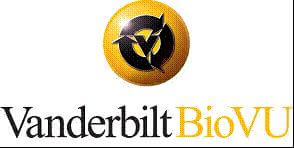
Bioinformatics is big business. Leveraging computer science and information technology to find important trends in biological data is the best way to take advantage of advancements in genetic sequencing. But if you want to discover the mysteries of DNA you have to first collect a lot of it. That’s where biobanks come in. After five years of development, Vanderbilt University has finally opened BioVU, its DNA database, to its researchers. This biobank of more than 75,000 samples collected from VU’s adult medical patients will allow scientists to find important correlations between people’s genes and their health. According to VU Cast news, the first project to utilize BioVU will look at electronic medical records (EMRs) and see if genetic information about a patient would have lead to better health care, and determine if adverse drug reactions could have been predicted. Over the next few years, Vanderbilt hopes to grow BioVU to more than 250,000 samples from patients of all ages, including children.
Each biobank we’ve seen has its own quirks and advantages. The Kaiser Permanente database is large, 100k and looking to reach 500k, but focuses almost entirely on older patients in California. The UK has a half million samples (mostly untested), and Mayo Clinic and 23andMe have much smaller collections based on their clientèle. BioVU is fairly large as DNA databases go, and is fairly closed off. Only Vanderbilt primary investigators can have access to BioVU, although these researchers can have outside collaborators. This insulation from open use is in spite of BioVU’s thorough de-identification process to protect patient privacy that is common to (nearly) all biobanks. BioVU will be a powerful research tool despite its restrictive access (interested researchers will simply pursue collaborations with VU scientists) but I’m still disappointed. KP’s biobank is going to be openly accessible by researchers from accredited institutions and I wish the same were true here. Bioinformatics becomes more powerful as the amount of available data increases. Hopefully BioVU, and all DNA databases, will be able to share information, and perhaps even merge, so that scientists can perform the most enlightening and fruitful studies possible. Share the information, share the benefits. That simple.


